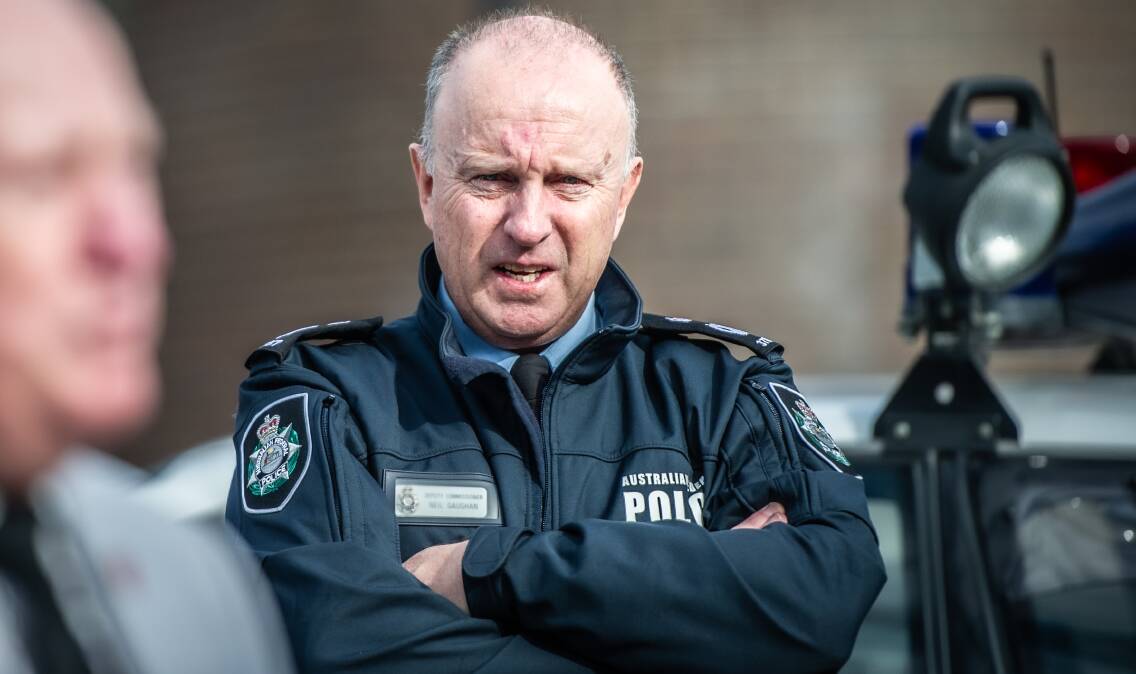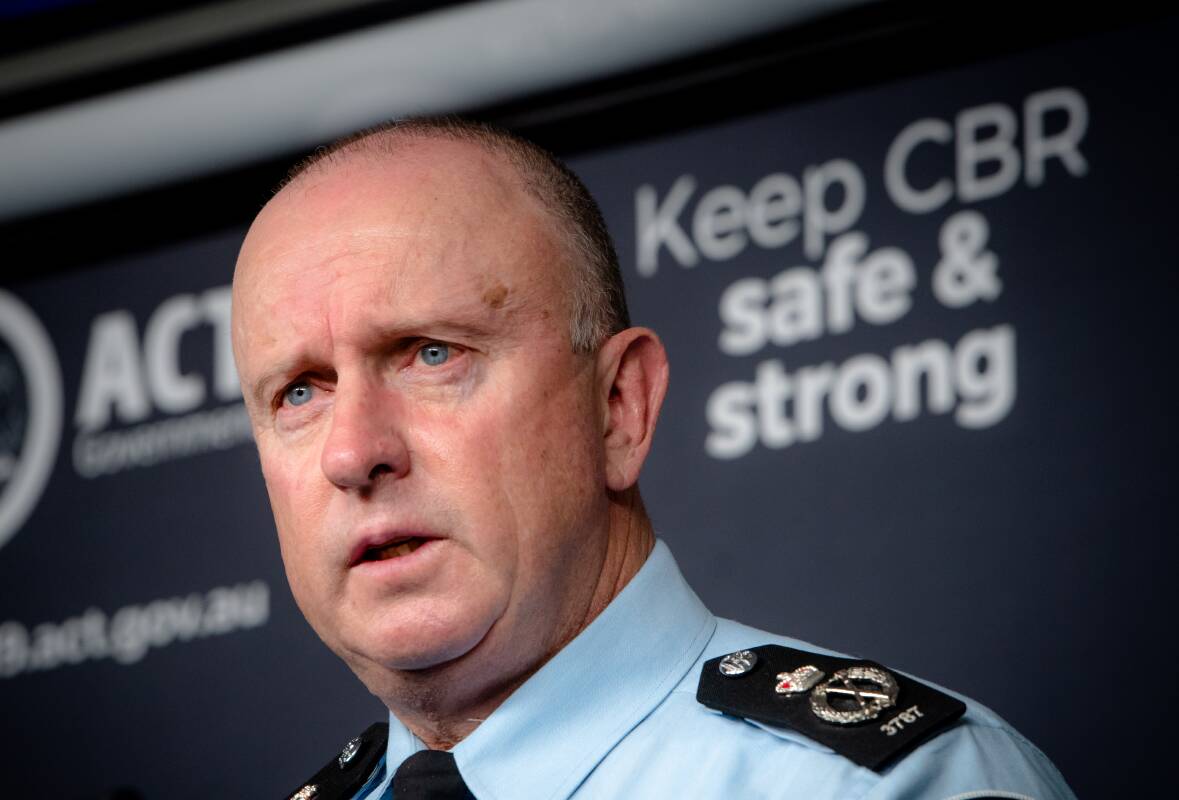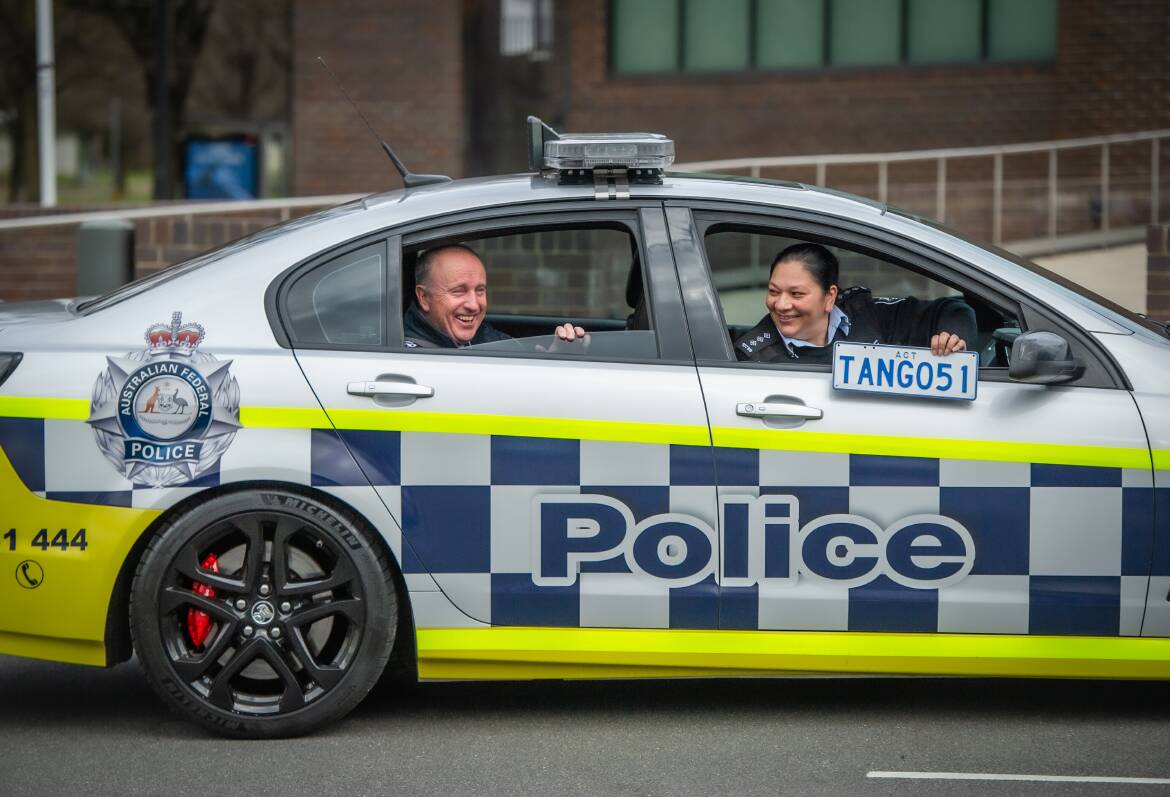One of the longest-serving chief police officers in the ACT since self-government will be retiring from the role in the next few months.
Deputy Commissioner Neil Gaughan, 60, made the announcement internally within the Australian Federal Police and will depart on March 22, giving AFP Commissioner Reece Kershaw time to identify a replacement.
As Deputy Commissioner Gaughan is also on the negotiation team for the next federal police enterprise bargaining agreement, due to be finalised midway through this year, it was important he continued in that role until the critical elements to the deal were hammered out.
A 40-year veteran of the force who joined when he was 19, he had flagged he would leave the top cop job in 2024 but had been cagey about the timing.
"I've always said that in these roles, three to five years is enough," he said.

"I'm at the end of my fourth [year as CPO]. I sincerely believe that; I don't think you can do this job for any more than three to five years.
"But I've lasted a bit longer than most.
"I enjoy doing what I'm doing but I've been in the job 40 years."
As to his next steps, he said he would retire from policing "but I'm not going to do nothing".
Intelligent, forthright and with a keen sense of humour, Deputy Commissioner Gaughan was appointed as the ACT's top law enforcement officer in June 2020, pledging that he would not make change for change's sake.
But he has seen a huge amount of it during his term, including the COVID border lockdowns and the ACT's Australia-first decriminalisation of illicit drugs, territory-specific legislation that was roundly criticised at the time by his direct boss, AFP Commissioner Kershaw.

The top job in Canberra's police has always been a difficult one, and has seen a significant amount of "churn" in the past 15 years. Until Deputy Commissioner Gaughan arrived, the longest serving CPO was Rudi Lammers, who arrived in 2013 and retired three years later.
ACT Policing operates on a service contract between the federal police and the ACT government worth around $200 million a year. That sum largely determines staffing levels but with police given the autonomy to direct sworn and unsworn resources where they are needed.
It means the chief police officer, who is always drawn from either an assistant or deputy commissioner role within the national AFP, effectively serves three masters: a demanding and affluent Canberra community, an ACT government paying the bills and providing the infrastructure, and the AFP commissioner.
Deputy Commissioner Gaughan came into the ACT in the wake of a public backlash over raids - which he ordered - on the Sydney offices of the ABC and the Canberra home of journalist Annika Smethurst.
The Smethurst raids sought to uncover evidence leading to where information was leaked regarding alleged unlawful killings by Australian soldiers in Afghanistan, and triggered a national debate about press freedom.

The notoriety of those cases and the backlash that followed didn't faze the career police officer. He declared at the time "if people think the law is broken and we want to carve out exemptions for activity, the law needs to change".
"But from a law enforcement perspective, that [legislative change] is not my call."
The president of the Australian Federal Police Association, Alex Caruana, wished the Chief Police Officer well in his retirement and said they had enjoyed an excellent relationship over the years.
"We both felt comfortable in picking up the phone to discuss issues as they arose," he said.
"I thank him for that as it made life easier for both organisations.
"During the rare times where we didn't see eye to eye, we would always have respectful conversations as ultimately, we had the same outcome in our minds of supporting the members of ACT Policing".







